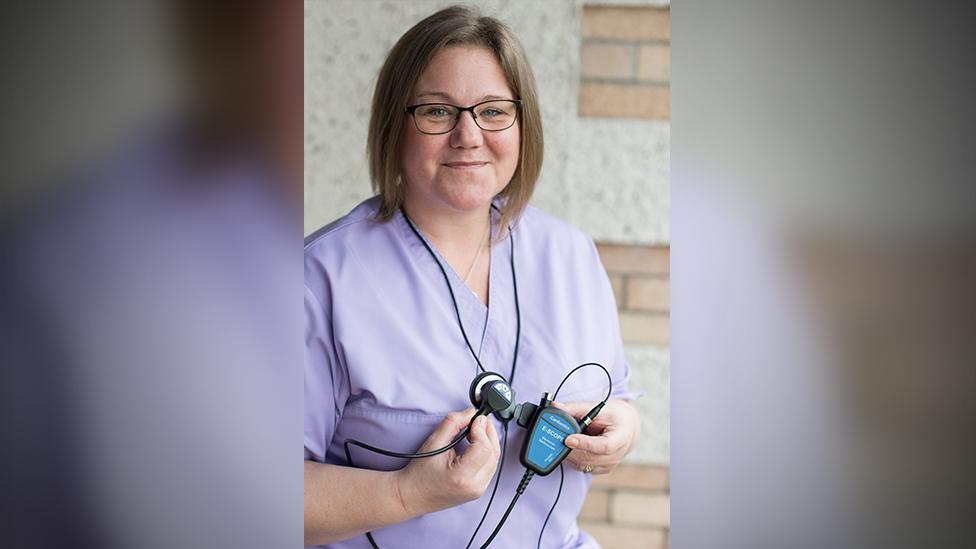Deafblind medical student's photos capture NHS diversity
- Published
"You don't look like a medical student - you've got a cane, you've got hearing aids"
Alexandra Adams has severe visual and hearing impairments but she is determined to become a doctor.
"I might not have as much eyesight as most, but I have more insight than many," she said.
Despite this, the third-year medical student at Cardiff University said she had experienced discrimination from medical staff while on placement.
She has now created a photography project to show there is "no set image to being an NHS worker".
Alexandra, from Cardiff, is completely deaf without hearing aids and her sight is gradually deteriorating. She also lives with muscular disease which has seen her in intensive care on 14 occasions.
She was spurred on to become a doctor after spending 18 months in hospital at the age of 16, when she needed a number of stomach operations.
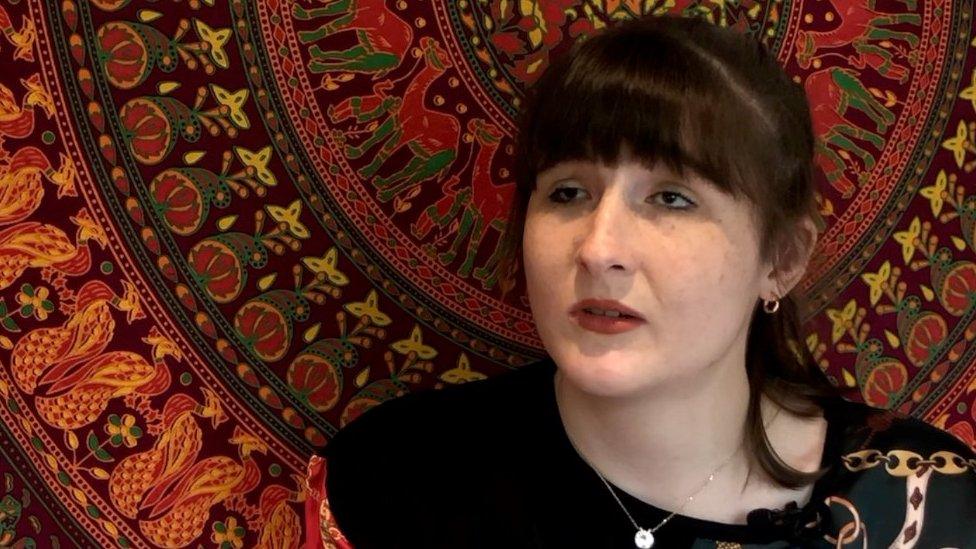
Alexandra was born with visual impairments and discovered she was deaf at two years old
Now she is training to become a doctor, Alexandra says she often finds herself having to answer the same question - how she is able to carry out her work.
"In terms of how I practically complete tasks, I have a Bluetooth stethoscope, for example, which is like a normal stethoscope except I don't put it in my ears, it connects to my hearing aids," she explained.
"I rely on my other senses such as touch to feel where the veins are. Also, you can pick up a lot about patients just by listening to them.
"Patient safety is always paramount so if I'm doubting something, or I'm unsure, I always ask someone else."
While saying there is nothing she cannot do, Alexandra admitted there were some tasks she finds more difficult, which is why she opted to work in palliative care rather than surgery.
In addition to these challenges, while training she said she has faced a level of discrimination she was unprepared for.
"Day to day, before medical school, being deafblind did not hinder me in any way whatsoever," she said, adding she was "a very independent person".
"When I came to medical school the discrimination I faced was loads of people saying 'you can't do this, you can't do that'. That's when it started being difficult and hard to deal with.
"I was constantly told that I wouldn't be able to do things, succeed in the field, and to essentially just stand in the corner and not touch any patients. "
To find out whether she had done the right thing, Alexandra travelled to the USA to meet other doctors working with disabilities.
"I met four blind doctors in New York City, then flew further out to San Francisco and met another blind doctor and also a deaf doctor," she recalled.
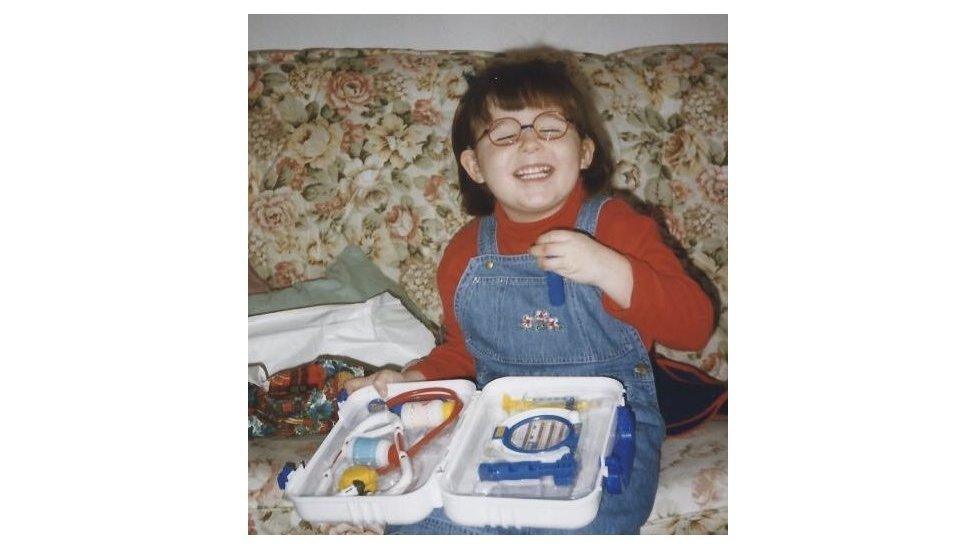
Alexandra believes her experiences as a patient have given her the insight to be a good doctor
Seeing these doctors succeed in their careers was all the proof Alexandra needed to continue her studies.
"The support networks, the acceptance and accommodation of doctors with disabilities, was just so much better and well-known than here," she added.
"Unfortunately we still have a long way to go with this acceptance in the UK."
Her experience prompted her to create Faces of the NHS, a photography project documenting diversity in the health service.
"I get a lot of people saying to me 'you don't look like a medical student, you've got a cane, you've got hearing aids', that's when I came up with the idea," she said.
For her project, Alexandra takes portraits of various NHS workers, past and present, and includes a little of their backstory.
She says people are often curious about how she takes photos.
"I do get really weird looks when I'm walking down the street, people are like 'how can she take a photograph? She's blind, she's got a white cane with her'."
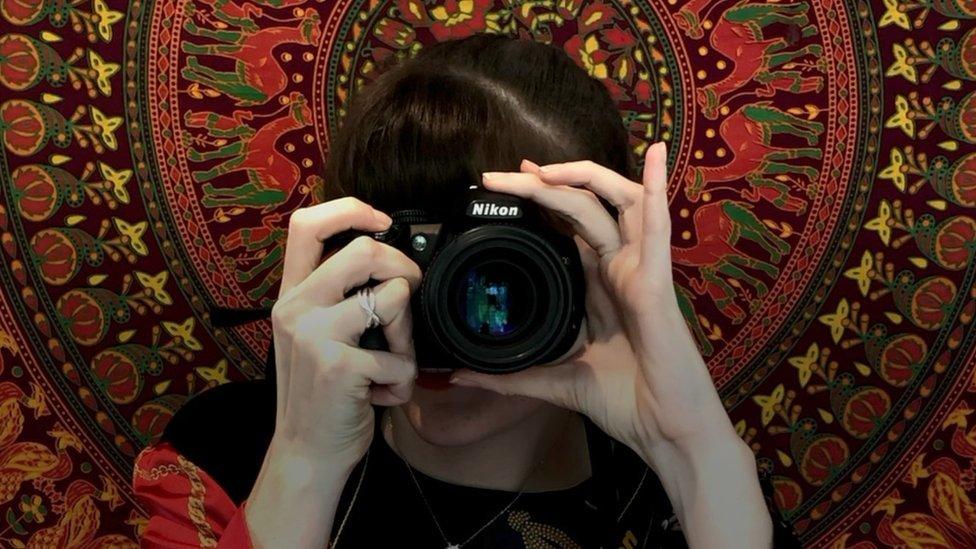
'Faces of the NHS' is a way of Alexandra channelling her love of photography into a positive project about diversity
However, she says she is more concerned with the story behind the picture - rather than how it is taken.
"I did it to show that we're all different, so that we can celebrate our differences and our diversity," she added.
"I wanted to take a negative experience and turn it into a positive impact."
The project aims to make people more aware of the variety of people who work in the NHS.
While Faces of the NHS is being documented on social media, Alexandra hopes to eventually compile all of the images into a book.
At first, she was approaching people to be involved in the project, but now they're coming to her.
Her latest portrait is of bestselling author and former doctor Adam Kay.
"It's very exciting and a very positive thing to be happening, but at the same time, I do have to be very realistic and careful," she said.
"I am a medical student, and I am studying for exams, I have to try and prioritise the project alongside my work - the real work."
- Published11 December 2018
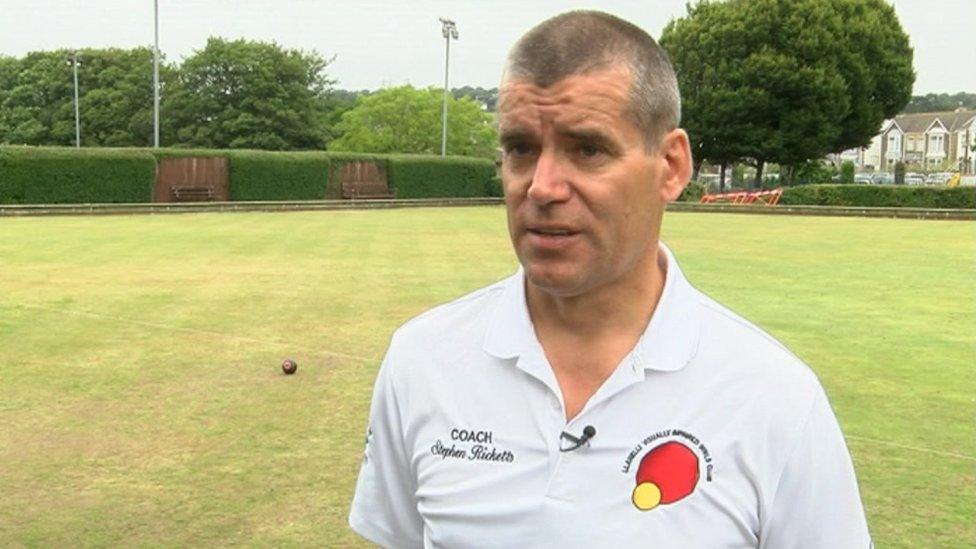
- Published13 September 2018
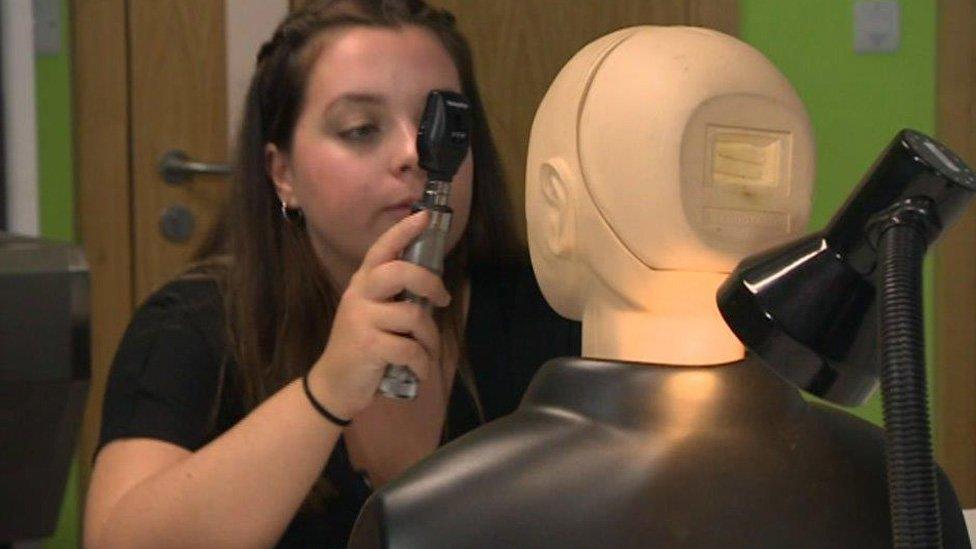
- Published13 March 2018
